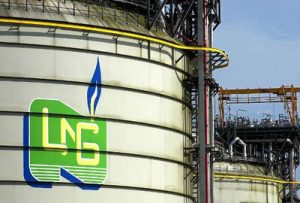By Innocent Obasi
Nigeria Liquefied Natural Gas (NLNG) Limited is implementing studies on Carbon Capture, Usage, and Storage (CCUS), hydrogen electrification, and evaluating how these can support the country’s energy transition journey, the company said on Thursday.

The reality of the Russia-Ukraine conflict has prompted several countries and operators to look into potential in hydrogen and other renewable alternatives, though Nigeria has recognized gas as a transitional source of energy.
Nigeria recently launched its Energy Transition Plan, a road map to tackle the dual crises of energy poverty and climate change, saying it would require as much as $410 billion to achieve the plan by 2060.
NLNG became recognized as a functioning business when its first cargo sailed from Bonny Island in Rivers State to France. The company, which has safely delivered over 5,400 LNG cargoes and counting in its 21 years of operation, said it is essential to future-proof the gas industry through a sustainable strategy, particularly in light of current global issues and crisis.
“As an enterprise, we have completely embraced energy transition. And there are many elements to that. There is a business necessity to that because our stated vision is to be a globally competitive energy company that is helping to build a better Nigeria,” Ogunleye said.
“We cannot be globally competitive if we are not in touch with market dynamics and new realities, and if we are not embracing decarbonisation. So, another important element is that we have integrated energy transition into our business at all levels. We have a Carbon Council that has been in place for over one year,” he said.
Ogunleye said NLNG was also creating a green culture within the organisation by recasting energy transition in personnel channels.
“It is about job security and sustainability, future-proofing our business, and so all the members of staff can see the benefits in real concrete terms. These are great learnings and we also found that we cannot embark on this journey in a silo. We have got to reach out and touch base with what is going on globally,” he said.
The NLNG deputy managing director said the company has developed and approved an energy transition roadmap that is robust, navigable and comprehensive, with specific milestones and short-term targets, mid-term and long-term targets with different deliverables and work plans in them.
“For us, it is all-encompassing. It’s not just the plant but also non-plant assets. We are revisiting our shipping assets and replacing steam engine ships with modern engines that are more environmentally compliant,” he said.
He said the company was also gradually focusing on decarbonising all across its value chain and, in terms of key learning, NLNG has found an easy transition to be an opportunity to validate its business model, deepening digitalisation and creating efficiency across its business.
“We also see that as an opportunity to create a new partnership, a relationship and to learn and to grow as an organisation,” he said.








